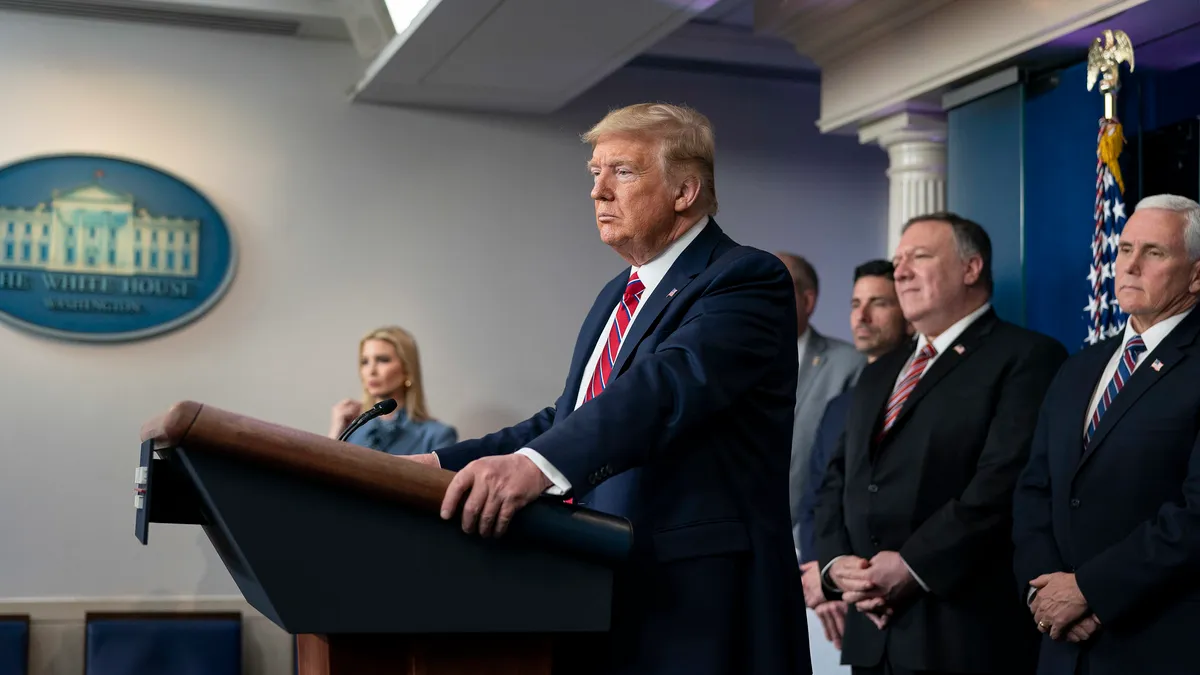Dive Brief:
- The Trump administration’s coordinator for coronavirus diagnostic testing Brett Giroir warned on Monday against overreliance on antibody tests to slow the spread of the coronavirus pandemic before they are fully validated.
- The FDA, CDC, and NIH are working to validate some of the COVID-19 antibody tests on the market “because it is very important that they actually do what they say they do,” according to Giroir. But he added: “We have reason to believe that not all of them are going to perform well.”
- Giroir referenced a Financial Times article published Monday reporting the U.K. government bought 17.5 million antibody tests from nine undisclosed companies but in testing they had many false negatives and false positives. “We’re not going to get in that situation,” Giroir argued. Still, he touted the potential for blood-based serology testing to become a tool for identifying millions of Americans exposed to the coronavirus who may have immunity to COVID-19.
Dive Insight:
The administration contends serology tests that measure coronavirus antibodies, not active infection, are the key to "reopening" society by determining who has been infected and recovered from the virus. However, the White House strategy first requires accurate, widespread antibody testing in the U.S., which is much easier said than done.
FDA last week granted to North Carolina-based Cellex the first and only emergency use authorization to date for a blood test to detect coronavirus antibodies. BD and other companies have made available serology tests without an EUA in compliance with the agency’s latest coronavirus diagnostic test guidance, issued March 16.
“The FDA does not intend to object to the distribution and use of serology tests to identify antibodies to SARS-CoV-2 where the test has been validated, notification is provided to the FDA, and warning statements are included with the tests, for example, noting the test has not been reviewed by the FDA,” the guidance says.
At the same time, the document emphasizes that negative results from serology tests "do not rule out SARS-CoV-2 infection” and that “follow-up testing with a molecular diagnostic should be considered to rule out infection in these individuals.”
Nonetheless, Giroir contends if a person is found to be "positive for the antibody" through such testing, it "strongly implies that you have had the virus before and, to the degree that we know of medical knowledge, you will probably—highly probably—be protected against getting the virus again in the future."
Once the government is able to confirm the tests work, he contended, “we’re highly confident that this can be scaled rapidly" to provide “surveillance screening” for millions of Americans to see if they have immunity to the virus, with the goal of “reopening” the country and sending people back to work.
Still, Giroir concluded: “We’re going to have to be very careful to make sure that when we tell you you’re likely immune from the disease, that test really said that.”
Earlier on Monday, FDA Commissioner Stephen Hahn tweeted that he had a "great call" with diagnostic test developers to "receive their input on finding more solutions to make available accurate serological tests that identify antibodies." An agency spokesperson declined to provide MedTech Dive with additional details on that call with manufacturers or what was discussed regarding testing accuracy.











